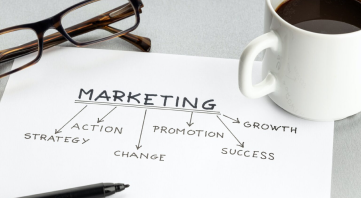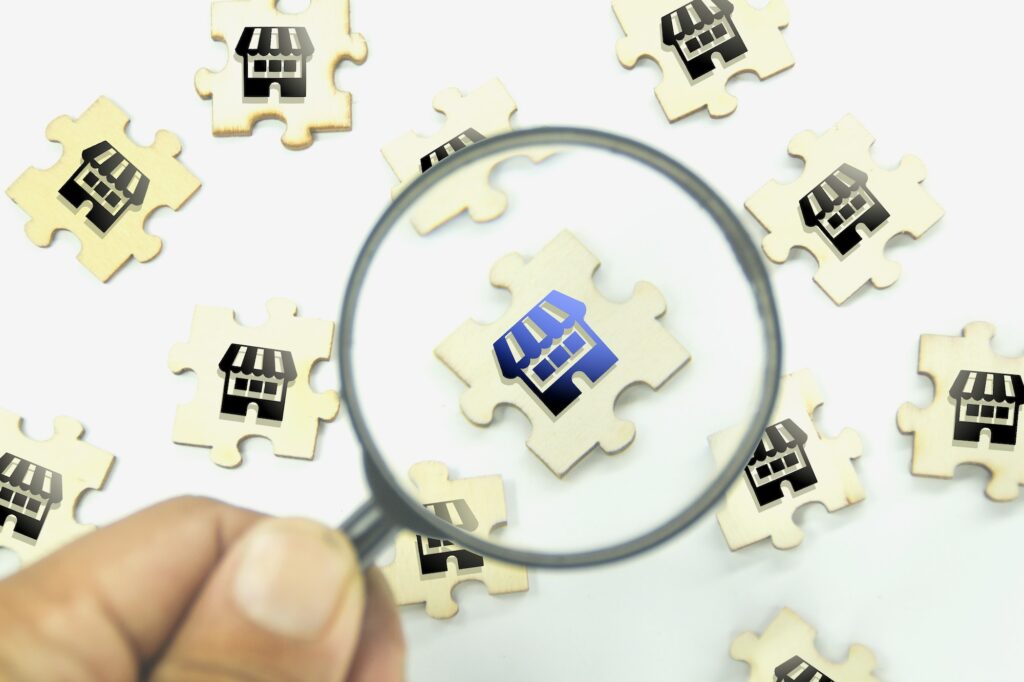Introduction
No matter the size of your business, marketing plays a crucial role in gaining brand recognition as well as those all-important customers. Your marketing strategy, just like your content, should never be accidental; it requires research and planning to come up with the best solution for your business.
The biggest advantage of online marketing is that it has levelled the playing fields. Smaller businesses can compete on the same platforms as larger businesses, as you no longer need a massive budget to advertise on billboards and run advertisements on TV.
Online marketing, when done strategically, can make all the difference, especially for smaller businesses. For example, according to research, two out of every three small businesses use online marketing to grow their customer base.
Website - your best investment
It goes without saying that businesses without a website are losing out and as mentioned in our article Does my small business need a website? Six key reasons why your business needs a website!
We highlighted the main reasons why your business needs a website and as we said – Not having a website is no longer an option. You will find yourself being left behind as your competition continues to expand its reach, grow their business, and take advantage of all a website offers.
Having your own website will significantly impact your small business’s success rate. They are crucial to establishing your credibility, increasing your visibility, improving brand awareness, attracting new customers, and boosting your revenue.
A website will be your most significant investment when it comes to marketing your business online. But it is the one investment that shouldn’t be negotiable. Many platforms like WordPress, WIX, or Shopify allow you to build your own website, which we recommend if you require a basic site.
The more complex your site requirements are, your best option is to leave it to the professionals.
Remember, your customers will judge your business based on how your website looks. Anything that looks amateurish will give them the impression that your entire business is unprofessional. And on a final note, businesses without websites tend to lack credibility!
Google Business Account
If your target audience is local, then a Google Business Account is one of the easiest and fastest ways to get your business “out there.” It is a free service that helps you promote your local business online and allows you to manage how you appear online across Google. Through personalisation of your profile/account, you can help your business stand out.
You are increasing your reach by creating, verifying and optimising your Google Business Account, especially as most users looking for local businesses do so from their phones. Once your account has been opened, you will appear in Google searches and on Google Maps.
Take the time to set up your account, personalising it and highlighting all the essential information you want potential customers to know about your business. Your customers can even request a quote or make a booking through your business account.
Another advantage is that customers can leave reviews, and you can respond. Customers place a high value on positive reviews, as does Google, which will greatly improve your local SEO.
Search Engine Optimisation
It goes without saying that SEO is integral to all businesses, especially when it comes to attracting organic traffic. Every aspect of your online presence needs to be optimised, including everything from your website to your social media pages.
Have a look at one of our previous articles for more detail on SEO and its benefits. In simple terms, search engine optimisation (SEO) are steps you can implement to help your website or content rank higher on Google (Google’s market share is around 92%). SEO involves organic rankings; in other words, you are not paying to be high on the rankings. So to rank higher, you need to ensure that you optimise your website or content accordingly.
Online advertising
SEO is critical, but it is not a quick-fix strategy as it can take a couple of months before you see any results, whereas online advertising can often have an immediate impact. Online advertising is a massive business in itself and is expected to reach $646 billion by 2024. One of the biggest benefits of online advertising is that every aspect can be tracked so that you can easily identify what is and what isn’t working.
PPC (pay-per-click) advertising allows you to target your audience so that your adverts reach the right audience. It is pointless for people who are not interested in your product or service to see your advertisements. Instead, you need to narrow it down and focus on where your business will most likely receive the best investment return.
Online advertising allows you to customise your target audience against specific criteria like age, gender, location, interests, behavior, etc. A huge advantage of online advertising is that it extends your reach beyond any other form of advertising. For example, there are approximately three billion monthly active Facebook users. And if you take into consideration that Google handles on average 63,000 queries every second, online advertising is something that you can’t afford to ignore.
It doesn’t matter what size your business is; you don’t want to waste your marketing budget on unnecessary advertising, especially when you take into account that it takes between $3 and $10 to reach 1000 people through online advertising.
Online advertising is also the one form of advertising that allows you to gain those all-important insights. You will be able to measure whether or not your advertising is actually making an impact and providing you with a return. The data will also provide insights into why your advertisement didn’t perform well, allowing you to improve it going forward.
Google Ads – Paid Seach
Google Ads enables you to drive traffic to your website as these ads are reflected at the top of Google’s search engine result pages, including being above organic and local listings.
The biggest advantage is that you only pay for results – in other words, Google will only charge you when users actually click on your ad. You can set a monthly budget, and none of those long-term contracts are in play.
Based on your budget, Google will show you estimated results before starting your campaign. They also provide insights and reports that help you track how well your ad is actually doing. This is great for smaller businesses as you can adjust your budget accordingly and pause and resume your ads when needed.
The above strategy is known as paid search and is probably one of the key online advertising strategies considering most customers look for products or services online. This form of advertising is invaluable as it allows you to target everything from certain keywords to locations etc.
Social Media
Social media is key to most businesses as not only does it extend your reach, but you are also able to drive customers back to your website. Your website is the only “place” where you actually own the data – in all other instances, the relevant platform basically owns your data.
Social media is number two when it comes to the online advertising market. Revenues in 2021 were in the region of $153.7 billion in 2021 and are expected to reach $252.6 billion by 2026. It makes perfect sense when you think of how frequently and how much time everyone spends on social media – on average, it is around two and a half hours a day.
Most social media platforms offer paid marketing options, which allow you to create targeted campaigns. Depending on your business, you will need to decide which platform is best suited for your purposes. The most popular social media platforms include:
- TikTok
- YouTube
Social media is not about aggressively selling to your current and prospective customers; it’s all about creating interest in your business and driving those customers to your website. You want to intrigue them enough that they want to know more about you. So it is imperative not to forget those CTA (call to action) buttons!
Keeping track of trends
Although this doesn’t necessarily fall into how you market your business, keeping an eye on your competition and your customers is always crucial.
Google has two great tools for this – Google Alerts and Google Trends. With Google Alerts, you can easily set up an email alert when certain words are mentioned online. This can be keywords, your business, or even your competitors, while Google Trends lets you view what is most important to your customers through analysing Google searches.
Both of these tools will help you with your SEO by identifying the latest trends, which will put you in a better position to decide on those keywords, article content, etc.
Creating reusable content
In previous articles, we have spoken before about how important it is to write original, high-quality content and that no one likes boring content, so it is important to plan your content in advance and ensure that it is relevant and consistent.
Consistency is key, and you need to be posting regularly. But that doesn’t mean you need to create new content from scratch. Instead, you can reuse your content in one form or another across your website and various social media platforms.
Conclusion
As you can see, there are many different options; the key is to keep your brand consistent across all online platforms. Deciding which social media platforms to use, depends on your business, and you will need to research accordingly.
As mentioned, the advantages of online advertising include the size of the audience you can easily reach and the fact that you can target the audience who are most likely your potential customers. PPC (pay-per-click) advertising allows you to only pay for customers who are interested, and with solutions like Google Ads, you can set your own budget, giving you that much-needed flexibility.
There is no time like the present to get going on planning and researching your perfect online marketing strategy!







